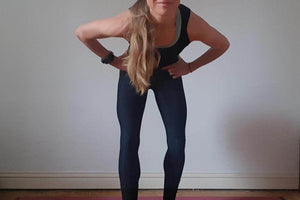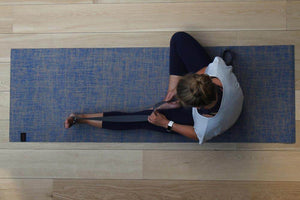Many people dream about leaving the daily grind of the office job and following their dreams of becoming a personal trainer. But there is more to being a PT than just loving exercise, and with the increasingly growing competitiveness of the fitness industry, you need to know you’ve got what it takes to succeed. With so much to consider it can be hard to know where to start. This guide will give you an idea of what it takes to be a great personal trainer.
What qualifications do you need to be a personal trainer?
There are 4 qualifications you need to become a Personal Trainer in the UK:
- Level 2 Gym Instructor
- Level 3 Personal Trainer
- First Aid Certificate
- Personal Trainer Insurance
What is a Level 2 Gym Instructor?
A level 2 Gym Instructor qualification is your first step towards a career in fitness. This is the entry level qualification to be able to work in a gym and is essential for building a career in fitness. Whether you want to become a personal trainer, teach fitness classes, or just work in the gym, you will need this course as your foundation. The level 2 Gym Instructor qualification includes a basic knowledge of the anatomy and physiology of the human body for exercise, health and safety and principles of exercise, as well as the foundations of fitness and health. Once you have a level 2 qualification, you will be able to apply for jobs in a gym, although you won’t be qualified to train clients one on one for PT sessions.
A typical day in the life of a Gym Instructor:
6 am - Start Morning Shift. As a gym instructor you are usually responsible for opening the gym. This can include doing health and safety checks, equipment checks and fire checks all prior to opening.
7 am - Cleaning. Most gyms will have cleaners responsible for the changing rooms and floors, but as a gym instructor the machines and free weights are your zone and you will need to clean and maintain the machines.
8 am - Walking the floor. Keeping members happy is part of your job, so be ready to circulate the gym floor, chat, and get to know the members. As a level 2, you have the knowledge to offer general guidance, but you can't offer 1-1 paid sessions.
9 am - Calls. You have to be good on the phone, here you may be calling to book in members for inductions, classes or other sessions. You’ll also be calling new and old members to see how their fitness journey is coming along.
10 am - Inductions. This is the main part of your job: introducing new members to the gym equipment so they can use it safely and effectively. It's your job to make sure members are using the equipment safely and to answer any questions they have about their exercise routine.
How long your shift lasts will depend on which gym you work at. Some gyms require 5 hours, some only 3. You won't be paid for this time at most gyms, but at some you may be paid minimum wage.
Once you are a qualified level 2 you can move on to do courses such as Exercise to Music and Group Cycle or Adolescent Training which enable you to teach classes or supervise children.
Level 3 Personal Trainer Qualification
The Level 3 Personal Trainer qualification takes the knowledge built from Level 2 and delves into the subject further. It will cover health and safety in more detail to account for safeguarding children and vulnerable adults and you will be taught how to properly write workout programmes for clients. There is a module in the principles of nutrition and some courses offer modules in business management, particularly useful if you are going to be self-employed.
A typical day in the life of a Personal Trainer:
6 - 9 am - Your early morning clients. These will be the ones trying to fit their training in before work.
9 - 11 am - The Parents. These clients typically want to train as soon as they’ve dropped the kids off at school, so this can be a popular and busy period.
11- 2 pm - Train yourself and eat lunch. This time of day tends to be very quiet for PT. This is a good time to get in your own training and nutrition, as well as chatting to the other PTs to share ideas and learn more. You will learn more about being a personal trainer after you complete your course than you actually learn while doing the qualification so it's important to do research and share knowledge with like-minded individuals.
3 - 5 pm - Programming.The time between morning and evening is usually spent writing client programmes, accessing their successes, and evaluating their falls to make sure what you’re doing is best for them at all times. This is the time to write goals and to come up with new business ideas for your fitness business.
5 - 10 pm - Evening Clients. The evenings are your busiest time for clients, getting in their training after work. You’re likely to be at the gym until close to fit everyone in if you are successful.
Insurance and First Aid
As a personal trainer, you will need public liability insurance at a minimum of £5 million to cover any accidents that your clients may have while training with you. All gyms will require this as standard so it's important to get this as soon as you've qualified. You will also be required to go on a First Aid course which will cost around £50. Your gym may hold courses locally or you may have to travel.
Personal Trainer Outgoings
If you have started a career as a personal trainer with the promise of earning heaps of cash, unfortunately that's not what will happen. In your first year of building up your business, you will certainly make a loss. Your outgoings will include paying for your training course, paying for insurance and first aid, branding for your new business, setting up a website and printing business cards, giving free taster sessions to drum up business, and the biggest outgoing will be paying your gym license fee. Depending on which gym you work at, this can range from £400 to well over £1,000 per month. Once you have built up a loyal client base, you will begin to make more of a profit.
The Pros and Cons of Being a Personal Trainer
|
Pros |
Cons |
|
You’re helping people achieve their goals and doing a job you love. Seeing clients smash their goals and knowing you helped them feels amazing. You wake up and look forward to seeing their faces and thrive off their victories. |
Without clients, you have no job. When their income is low, you're the first cut. It can be challenging to keep a steady income, it often climbs and drops. This can prove difficult for those looking to move out and get a mortgage, or if you are responsible for children and need more job security. |
|
Clients become your friends. You may even see them more often than your friends so these clients are more than just your wages, you build a relationship and care about them. |
Clingy clients. You’re a PT 24/7 and when your clients are having midnight cravings, guess who they're going to call? Just be aware that it’s all part and parcel of your job to be available. |
|
You pick your own work schedule, sometimes. |
Clients dictate your schedule. Despite being self-employed, you have to be flexible to your clients' schedules. Your last client doesn’t care that you’ve been up since the crack of dawn, you’ve got to stay on top form for long hours. |
|
You’re always active, on your feet and keeping moving. |
Unsociable work hours. Early mornings and late nights, plus working weekends. |
|
During busy seasons you'll be working your socks off. Meeting new people and teaching them new skills. |
Quiet seasons such as the Christmas period mean you will make less money. |
|
You can wear activewear all the time. |
The fitness industry is subjective and you may come across clients who think they know more than you or who do not listen to your advice which can be frustrating. |
|
You inspire good habits in others. |
There is a lot of competition out there and some clients may switch from PT to PT, especially if others are offering cheaper sessions. |
|
No two days of work are the same. |
You have no job security and no statutory rights as a self-employed personal trainer so you are completely at the mercy of the gym manager. |



























































































